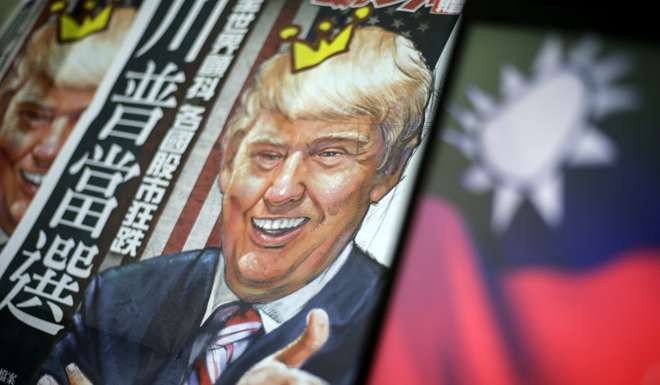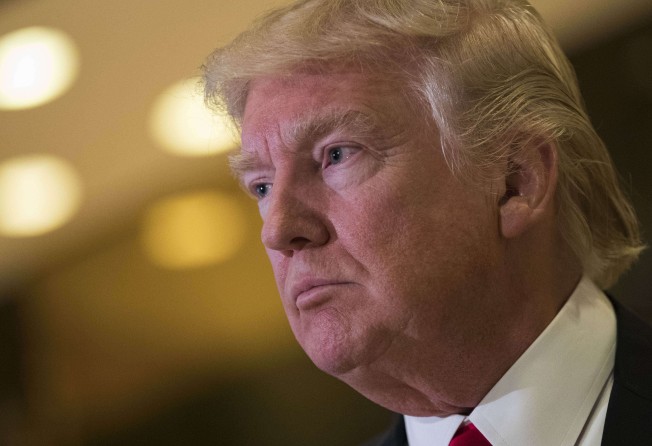
For Trump, one China, like everything, is negotiable
There will be no trade talks, only confrontation with Beijing, if he abandons policy, analysts say

US president-elect Donald Trump has demonstrated his determination to force China to concede on trade using the one-China policy as leverage, despite Beijing’s protests and warnings over the past weeks, analysts said.
In an interview with The Wall Street Journal published on Friday, Trump said he would not honour the US commitment that Taiwan was not to be recognised diplomatically, unless he saw what he considered progress from Beijing in its currency and trade practices. “Everything is under negotiation, including ‘one China’,” he said.
It was not the first time he had challenged the US policy that Taiwan is part of China. Last month he said the US would not necessarily be bound by the policy unless Beijing made concessions in other areas like trade.
The one-China policy has been upheld since 1979 when Washington shifted diplomatic recognition from Taiwan to Beijing. In December Trump took a congratulatory phone call from Taiwanese President Tsai Ing-wen, which broke the decades-long diplomatic tradition and caused great concern in Beijing.
“We can sell Taiwan US$2 billion of the latest and greatest military equipment but we’re not allowed to accept a phone call. First of all, it would have been very rude not to accept the phone call,” he said in the interview on Friday.

Although he has constantly accused Beijing of currency manipulation, Trump said he would not make a formal declaration of that on his first day in office, but would talk to China about it first.
Trump also said he would be open to lifting sanctions on Russia imposed over its annexation of Crimea, even though US intelligence concluded that Russian hacking influenced the US presidential polls.
“Trump is expected to play the Taiwan and Russia cards as part of his Asia-Pacific strategy after he takes office,” said Tsai De-sheng, Taiwan’s National Security Bureau director. “One China is a bargaining chip with Beijing, with which Trumps hopes to influence economic and trade relations.”
Trump’s stance, and his dismissal of furious responses to date such as diplomatic representations and military demonstrations, suggested he was “still complacent over his election victory, and also very determined on his strategy,” said Shi Yinhong, director of American Studies at Beijing’s Renmin University.
Trump might send a high-level military officer to Taiwan, sell it advanced offensive arms, or help it participate in international organisations that require the status of sovereign state to join, Shi said. But if Trump followed that path it would only lead to confrontation with China rather than the negotiations about trade that he hoped for, said Su Hao, professor of diplomacy at China Foreign Affairs University.
“To Beijing, the one-China principle is a matter of sovereign integrity and national dignity. No economic interest compares with that,” Su said.
The Chinese leadership’s credibility, at home and abroad, also relies on the one-China policy, Shi said. “Trump’s excessive haggles about China’s core interests, like Taiwan and the South China Sea, would only meet with strong retaliation.”
Additional reporting by Lawrence Chung